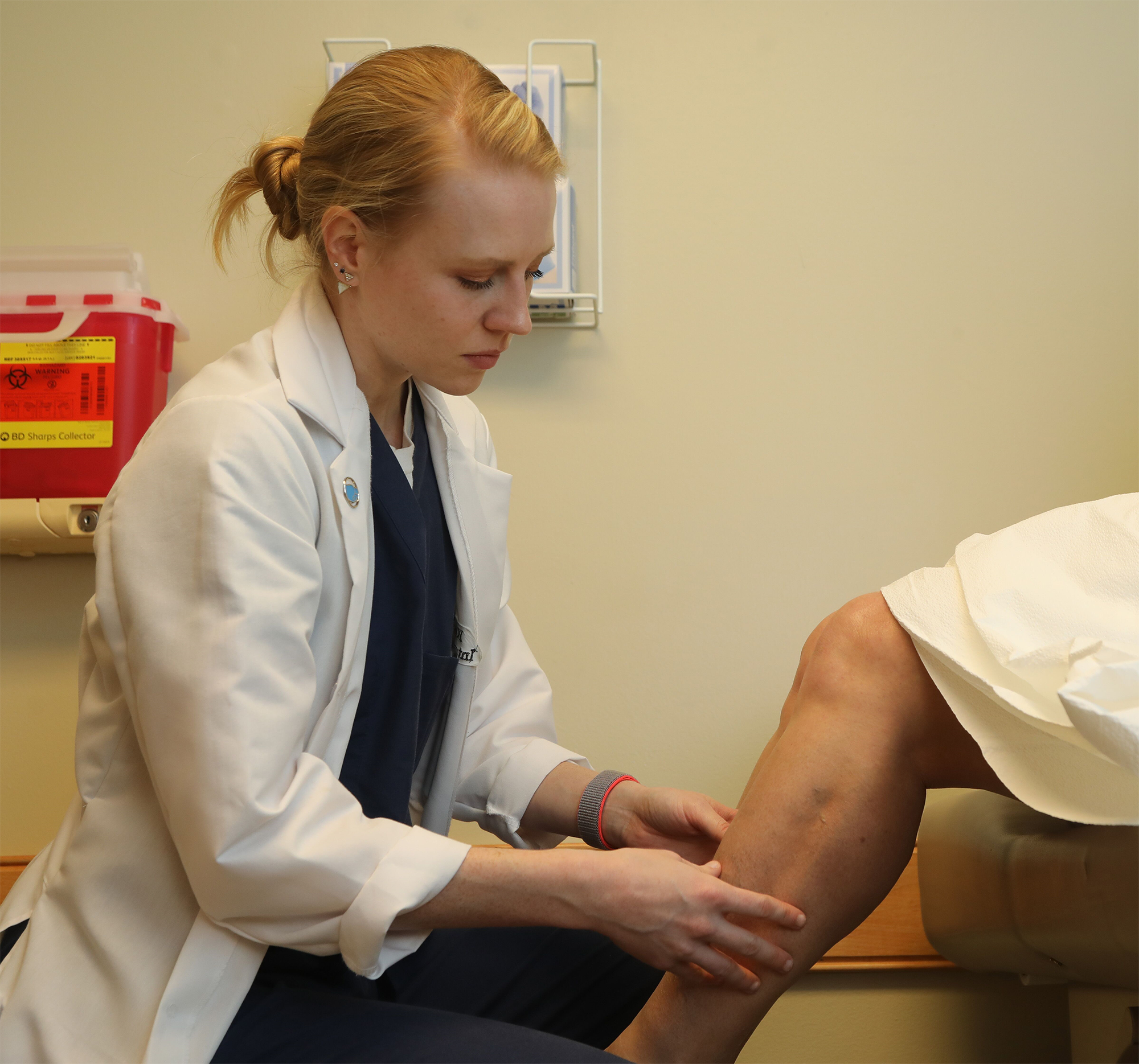
USA Health interventional radiology now treating vein disease
USA Health interventional radiology is now treating vein disease through the use of injections, ablations and phlebectomies or removal of varicose veins.
By Lindsay Mott
[email protected]

USA Health interventional radiology is now treating vein disease through the use of injections, ablations and phlebectomies or removal of varicose veins.
Vein disease occurs when a person’s veins are not working properly. Veins in the legs carry blood from the feet up to the heart and have valves that normally prevent backward flow. When the valves are not properly working, this leads to the symptoms associated with vein disease.
According to Kendyl Burke, PA-C, interventional radiology physician assistant, vein disease can show up in many forms. Some symptoms may be cosmetic, such as leg swelling, spider veins and varicose veins. Other symptoms, such as leg fatigue and heaviness or veins that burn, itch or ache, may interfere with everyday activities.
People who are at risk for this condition include those with family history of vein problems and those who are on their feet for long hours, including healthcare workers and teachers.
"Conservative management, such as exercise and compression socks, is a great place to start in treating vein disease, but these methods don't cure the underlying problem," Burke said. "The procedures that we perform in interventional radiology treat the problem at the source and can improve the patient's quality of life."
Most vein treatments are covered by insurance.
To schedule an appointment with interventional radiology providers, call 251-471-7207. You can learn more about IR at usahealthsystem.com/IR.
